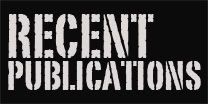
By SIMON ROMERO
Published: March 20, 2010
CARACAS, Venezuela — This may be a perilous time to operate a Web site focused on politics here, given President Hugo Chávez’s recent push for new controls of Internet content. But one plucky Venezuelan satirical site is emerging as a runaway success in Latin America as it repeatedly skewers Mr. Chávez and a host of other leaders.
Named in honor of the capybara, the Labrador retriever-sized rodent that Venezuelans are fond of hunting and eating, the 2-year-old Web site, El Chigüire Bipolar, or Bipolar Capybara, is rivaling or surpassing in page views leading Venezuelan newspapers like the Caracas daily El Nacional.
The rise of
Chigüire Bipolar, which has already drawn the wrath of state-controlled media here, and a handful of other popular Venezuelan sites focused on politics is taking place within a journalistic atmosphere here that international press groups say is marked increasingly by fear, intimidation and self-censorship.
CONTINUE READING













